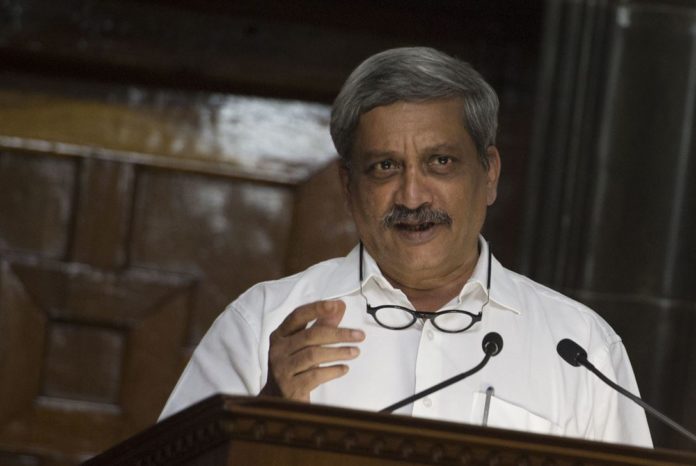As the veil lifts over Goa chief minister Manohar Parrikar’s ailments, Medibulletin explains pancreatic cancer
After months of suspense and in and out of hospitals, the curtain has finally lifted over Goa chief minister Manohar Parrikar’s mysterious illness. The 63-year-old Parrikar, it has not been revealed, is suffering from pancreatic cancer.
What is pancreatic cancer?
Pancreas is a mixed organ associated with the digestive system of them body – it releases digestive juices and also glucose regulating hormones such as insulin and glucagon.
According to Mayo Clinic, pancreatic cancer typically spreads rapidly to nearby organs. It is seldom detected in its early stages. But for people with pancreatic cysts or a family history of pancreatic cancer, some screening steps might help detect a problem early. One sign of pancreatic cancer is diabetes, especially when it occurs with weight loss, jaundice or pain in the upper abdomen that spreads to the back.
Stage IV pancreatic cancer has a 5-year survival rate of about 1%. Still, there are often treatment options available for people with this stage of cancer
What are the symptoms of pancreatic cancer?
The symptoms of pancreatic cancer can easily be mistaken for some other disease. These include:
- Pain in the upper abdomen that radiates to your back
- Loss of appetite or unintended weight loss
- Depression
- New-onset diabetes
- Blood clots
- Fatigue
- Yellowing of your skin and the whites of your eyes (jaundice)
How common is pancreatic cancer and what is the prognosis?
A rare cancer, pancreatic cancer is feared because of the high death rates. Despite its low incidence in developed countries, pancreatic cancer is associated with poor survival and ranks as the fourth or fifth most common cause of cancer mortality. The incidence of pancreatic cancer in India is 0.5–2.4 per 100,000 men and 0.2–1.8 per 100,000 women.
What is the survival rate of pancreatic cancer?
The survival rate of pancreatic cancer is less than many other cancers. According to the American Cancer Society:
- The 5-year survival rate for people with stage IA pancreatic cancer is about 14%. For stage IB cancer, the 5-year survival rate is about 12%.
- For stage IIA pancreatic cancer, the 5-year survival rate is about 7%. For stage IIB cancer, the 5-year survival rate is about 5%.
- The 5-year survival rate for stage III pancreatic cancer is about 3%.
- Stage IV pancreatic cancer has a 5-year survival rate of about 1%. Still, there are often treatment options available for people with this stage of cancer.
What are the risk factors for pancreatic cancer?
Pancreatic cancer has a strong familiar link. Apart from that smoking and obesity too are risk factors for the disease. These are the risk factors that Mayo Clinic lists:
Factors that may increase your risk of pancreatic cancer include:
- Chronic inflammation of the pancreas (pancreatitis)
- Diabetes
- Family history of genetic syndromes that can increase cancer risk, including a BRCA2 gene mutation, Lynch syndrome and familial atypical mole-malignant melanoma (FAMMM) syndrome
- Family history of pancreatic cancer
- Smoking
- Obesity
- Older age, as most people are diagnosed after age 65
It adds: “A large study demonstrated that the combination of smoking, long-standing diabetes and a poor diet increases the risk of pancreatic cancer beyond the risk of any one of these factors alone.”


